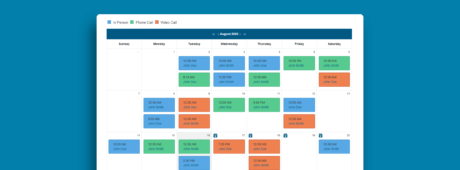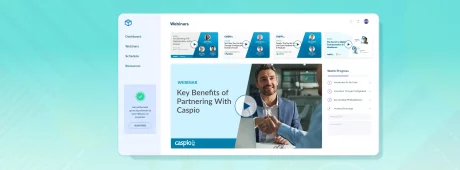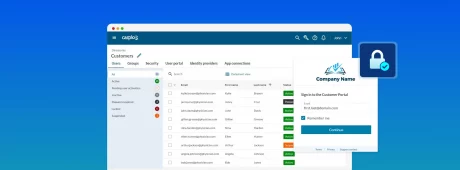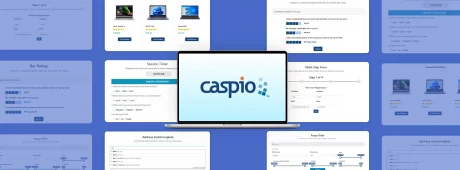How a Digital Archiving Company Moves Paper Documents to the Cloud [Video]
July 29, 2018
![How a Digital Archiving Company Moves Paper Documents to the Cloud [Video]](http://dbgurusweb01.apps123.com/wp-content/uploads/blog/21-digital-archiving-corporate-cataloguing-cloud.jpg)
Remember the floppy disk? Back in the day, people stored their data on stacks of floppies that would overrun desk drawers and filing cabinets – mainly because floppy disks had such limited storage capacity. It was entirely conceivable for complex financial reports, for instance, to be stored in dozens of floppies. As a medium for digital archiving, floppy disks were also notorious for being fragile, and mishandling your floppies would often lead to important data being wiped out in an instant. Disk recovery services made a killing.
We’ll show you how to build online database apps without coding!
It’s not surprising that floppy disks quickly gave way to media that was both physically resilient and had larger storage capacities. First came the CD, then ZIP drives, then SD cards. However, the dream was always to remove the need to physically store digital media altogether.
This dream came true with the advent of cloud technology. Storing data in the cloud allowed businesses to save costs in operations and infrastructure, paving the way for their digital transformation and rendering paper filing obsolete. Gone are the days of messy filing cabinets when all your data is securely stored in the cloud. Better yet, you no longer need to drive back to the office whenever you forget an important document because the cloud makes all your documents accessible from anywhere.
What if you’re a company with a lot of paper documents and are looking to archive them in the cloud? This is where David Ford comes in. As the founder of Corporate Cataloguing in Australia, Ford has helped numerous clients digitized their paper archives using custom database applications that he built himself.
Toward digital archiving
Based in Sydney, Corporate Cataloguing helps clients across Australia, the United Kingdom, the Middle East and Canada identify, archive and store their paper documents in the cloud. “We do archive and document management for large corporate customers,” said Ford.
Learn more about his story in this video:
Initially, Corporate Cataloguing used MS Access for their archiving service. However, the limits of Access became glaringly apparent in 2012, when one of Corporate Cataloguing’s clients needed assistance in the digital archiving of nearly 60,000 boxes of documents. Ford realized that he needed to build a scalable custom online database, but didn’t have any experience in coding. Fortunately, he found Caspio and was able to create scalable document management applications without writing a single line of code.
“By building it with Caspio, we’ve taken 60,000 actual physical boxes in storage and leave them basically online,” Ford shared.
Creating secure database applications
Ford wasted no time using Caspio’s visual user interface and step-by-step wizards to easily create and customize his applications. Using Caspio, Corporate Cataloguing was able to securely store and manage the data of their clients online. Ford also praised Caspio’s strong security measures – from infrastructure implementation to employee training – that enabled him to earn the trust of his clients to handle confidential information.
“Since then we’ve evolved our application to do both their digital archiving process and also manage the documents and we’ve expanded to over a number of companies,” he said. “We hardly ever found any problem with data or with the whole system going down. And our clients never complained that their application is never available,” he added.
Want to know how to create custom database applications with Caspio? Schedule a free demo with one of our experts and jumpstart your digital transformation today!


Recommended Articles

HR Solutions Firm in Spain Builds Entire Business Model on Caspio | Caspio
READ STORY
Build and Extend Your Online Calendars With Caspio
READ STORY
Supercharge Webflow With Caspio Database Applications
READ STORY
How Consulting Firms Can Accelerate Digital Transformation With Low Code
READ STORY
Create Personalized Customer Experiences With No-Code
READ STORY
No-Code App Ideas for the Education Sector
READ STORY
Embed YouTube, Instagram and TikTok Videos in Your Web Apps
READ STORY
Top 10 Most Requested Apps of 2022
READ STORY
Improve Security Across Your Apps With Caspio Directories
READ STORY
How to Use Triggered Actions and Tasks in Your Custom Apps
READ STORY
Ways to Leverage Low Code in Your Healthcare Business
READ STORY
7 Surefire Ways to Upgrade Your Custom Web Forms
READ STORY
HR Solutions Firm in Spain Builds Entire Business Model on Caspio | Caspio
READ STORY
Build and Extend Your Online Calendars With Caspio
READ STORY
Supercharge Webflow With Caspio Database Applications
READ STORY
How Consulting Firms Can Accelerate Digital Transformation With Low Code
READ STORY
Create Personalized Customer Experiences With No-Code
READ STORY
No-Code App Ideas for the Education Sector
READ STORY
Embed YouTube, Instagram and TikTok Videos in Your Web Apps
READ STORY
Top 10 Most Requested Apps of 2022
READ STORY
Improve Security Across Your Apps With Caspio Directories
READ STORY
How to Use Triggered Actions and Tasks in Your Custom Apps
READ STORY
Ways to Leverage Low Code in Your Healthcare Business
READ STORY
7 Surefire Ways to Upgrade Your Custom Web Forms
READ STORY
HR Solutions Firm in Spain Builds Entire Business Model on Caspio | Caspio
READ STORY
Build and Extend Your Online Calendars With Caspio
READ STORY
Supercharge Webflow With Caspio Database Applications
READ STORY
